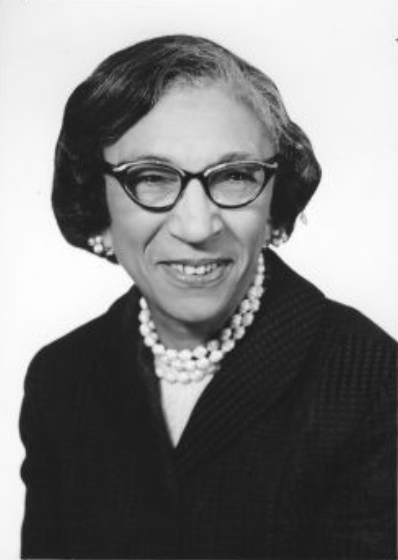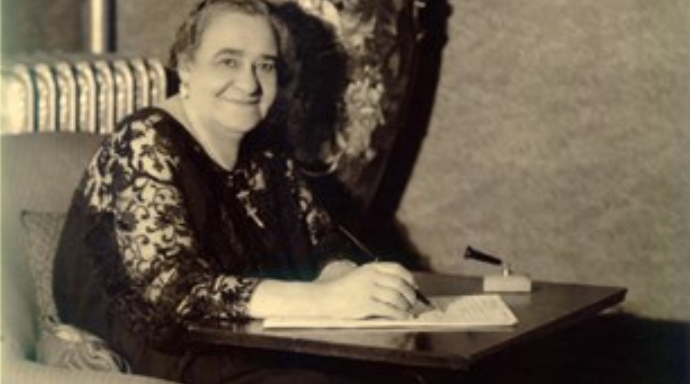Last week, I had the opportunity to write a Black History Month (BHM) feature for The Stute, and with the start of Women’s History Month (WHM) this week, I wanted to take the time to bridge between BHM and WHM with my column. Today, I would like to introduce you to two black women in finance who have made influential strides in markets today: Viola Mitchell Turner and Maggie Lena Walker.
Turner (1900-1988) worked her way up in the industry as a secretary for North Carolina Mutual Insurance (NCMI), and eventually became an influential portfolio manager in the early 1920s. Her education began in a private black school in Macon. She continued her graduate studies at Morris Brown College in Atlanta. There she studied business, pursuing her post-graduation career as a secretary for Tuskegee Institute in Alabama. In 1920, she was hired by NCMI and began developing branches in Oklahoma, Arkansas, and Mississippi. In 1924, she received an offer to work for headquarters under one of the co-founders, Charles C. Spalding, as his personal secretary. In this role, she worked on developing investment portfolios of mortgages and government bonds.
NCMI’s headquarters were located on Parrish St. which at the time was known as “Black Wall Street.” Curious and risk-taking, Turner started to work on an investment portfolio composed of stocks — this was something that had not been done before. While Turner had confidence in her investment portfolio, her male colleagues condescendingly named it her ‘little project.’ Turner prevailed, leading her portfolio to return nearly $20 M in assets for NCMI. Her accomplishment news spread like wildfire on Wall Street, and soon many brokers would request Turner’s financial advice. Despite her success, Turner faced discrimination and unequal pay for most of her career at NCMI. In 1957, she was appointed as Treasurer of NCMI and then went on to be Vice President of NCMI in 1960.

In 1903, Maggie Lena Walker (1863-1934) became the first woman in the U.S. to ever own a bank. Her activism and strength in accounting and math, allowed her to transform the way black businesses would grow in America. She was educated in a local school, and after her studies, she began her career as a teacher.
When she was young, Walker spent much of her time volunteering for the Independent Order of St. Luke’s. St. Luke’s was an organization devoted to helping the sick and elderly in Richmond, Virginia. Within this organization, Walker grew up the ranks as the Editor in Chief of the organization’s newspaper, The St. Luke Herald. She believed that the African American community can build better lives for themselves by establishing their institutions through the newspaper. She said, “No business, no enterprise, which has to deal with the public, can be pushed successfully without a newspaper.” She emphasized the importance of the Black Dollar and how it can empower the black community to grow during a time of heightened oppression in the segregated south. Black codes represented a level of oppression where blacks could not be part of wealth creation in the US.
With her strengths in accounting and math, Walker continued to create opportunities for the black community. She built an insurance company for black women. One of her most well-known pursuits is the creation of St. Luke Penny’s Savings Bank in 1903. While she became the first woman ever to charter a bank in the U.S., she showed the power of black self-help in the segregated South. Over the years, the bank expanded to include more than 50,000 members in Virginia and was one of the few banks to have survived the Great Depression.
However, in 1930, the bank was consolidated by Consolidated Bank and Trust, and now it is still in operation as part of People’s Bank. For the remainder of her career, she continued to fight for women’s rights and held many key positions in various organizations like the National Association for Colored Women and the Richmond chapter of the National Association for Colored People.

Turner and Walker are just two of many influential women in the world of investments. As we continue to celebrate women’s history this month, remember to give a shoutout to the wonderful women in your life!
Not Financial Times (NFT) is an Opinion column created by Roshni Revankar ‘22 to share insights and research into students’ favorite companies, industry trends, and anything in financial markets that really irks their curiosity.
Be First to Comment